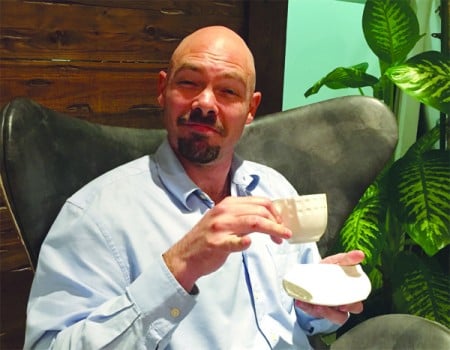I love the end of the year. The family is all together, food is abundant and my Blackberry stops working, especially if I turn it off, take the battery out and put it at the bottom of my sock drawer. Then I set my email auto-reply to tell people I’m out the office and will have limited internet access. While I’m in London.
It’s also when I get to indulge in numerous year-end review articles on a range of topics, from current affairs to sports and even advertising. I can remind myself what happened, what worked, what didn’t and how we got to where we are right now. Even though I lived through most of it, it’s always great to have a reminder about some of the stuff I may have forgotten about.
Conversely, I hate the beginning of the new year. Christmas is a whole year away, the family has gone their separate ways and my Blackberry has magically reassembled itself and has located 3,000 unread emails in the process. And about half of them are from all kinds of people who want me to read their version of a 2016 trend report “so that I’m in the know and can prepare myself for the year ahead”.
That’s great, I think to myself. Only me and the 12 bazillion other people on the email will know what’s going to happen next year. And look – it’s going to be a lot of the same stuff that happened last year. Why’s that? I’ll tell you why’s that. It’s because no one knows what’s going to happen next year. If we did, we’d all be billionaires sitting on desert islands surrounded by diamond trees. But the best predictor of what’s going to happen in the future is to look at what’s already happened in the immediate past, so we look at what’s already happened and predict that more of it will happen.
So where does that leave us when we write commentary about the future of whatever? I think the approach is right – look to the past to predict the future – but we need to look further than the last 12 months, especially when we’re looking at the creative and human sciences. We need to look further than the last decade even. We need to look at how it all began.
Account planning was created as a discipline because agencies felt that outside researchers who were not involved in the campaigns being developed were ill equipped to add true value to the agency’s end product. The research wasn’t always designed with the complexities of communication in mind, the recommendations were often not actionable and basic humanity was ignored. It created more confusion than it resolved and didn’t make the creative better. Sound familiar?
Planning was never intended to be a discipline unto itself. It’s not what our industry is all about. We don’t produce strategies and then sit back and wait for detergent to fly off the shelves or people to eat more quinoa. Creative does that. That’s what the consumers see. That’s what the clients buy. Because that’s the thing they can’t do themselves. They have people who can tell them what current trends are and do research, and some of them even have people who can take all that and create strategies and brand platforms and consumer journeys and an awkwardly proportioned chart with words that are too small to be read by the naked eye. But they don’t have anyone who can turn them into compelling, engaging, impactful communications. That’s why they call agencies. And planning’s job is to help creatives do all of that better.
With the current, breathtaking pace of technological innovation it’s far too easy to get distracted by the trends of the day – big data, content, programmatic, Snapchat, flapchat and chapchat – and forget that they are but a means to an end, never the end itself.
Planning’s role is, and always has been, to help make the creative as compelling, engaging and impactful as it could possibly be. It’s our past, our present, and something that we need to be reminded of more today than ever before, our future. We should never be allowed to lose sight of that.
Evan Kearney is strategic planning director at Memac Ogilvy Dubai











